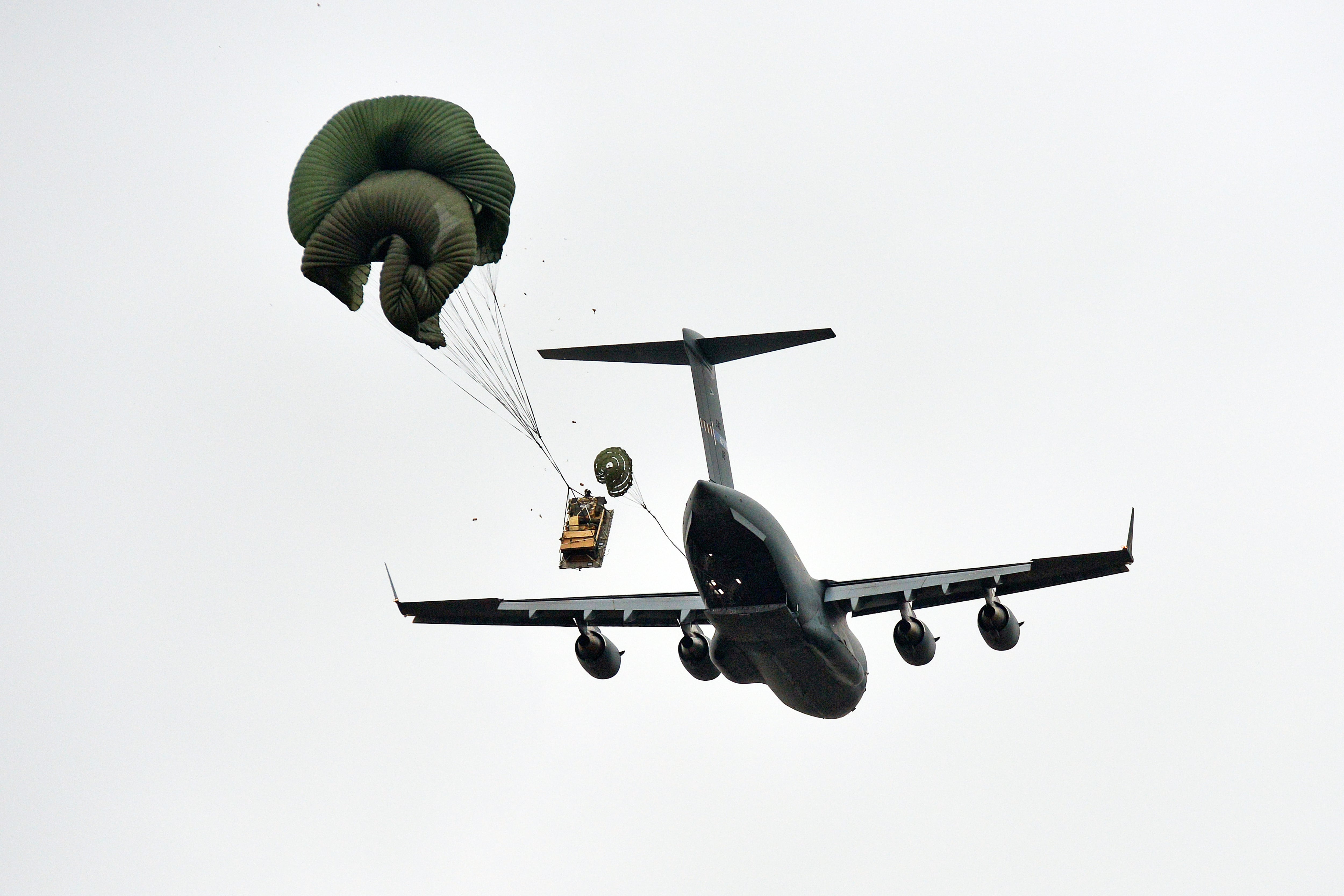GRAPEVINE, Texas — Although there is no precise delivery date for the troubled Boeing KC-46 Pegasus aircraft, the U.S. Air Force is already making plans for what it will do with the next-generation tanker once it is delivered to McConnell Air Force Base, Kansas.
“When the calendar day arrives that we accept that aircraft, we will then begin the process that we’ve been planning for for a while. It means we just begin to execute the [initial operational test and evaluation] at that point,” Gen. Maryanne Miller, the commander of Air Mobility Command, said in a roundtable with reporters at the 2018 Airlift/Tanker Symposium outside Dallas, Texas, on Friday.
“Its a familiarization that we will do, and its a whole series of a few months, actually months of going through that, and right now our crews are going through, we’re training the first cadre,” Miller said, noting that the simulators at McConnell would be certified next week.
“So we are ready. We’re just waiting for the operational test people, and a way ahead on the solutions.”
Asked how long it will take before KC-46s can conduct operational missions, Miller said initial operating capability would likely occur a year after delivery — and full operational capability two years after delivery.
But all of this is dependent on getting the long-delayed tanker to the hands of airmen. The company was initially slated to start delivery of the tankers by August 2017. That was pushed to October 2018, a deadline the Air Force said last week will not be met.
RELATED

And that’s still being worked out by the Air Force and Boeing. As of now, the aircraft has five category-1 deficiencies, including issues with the remote vision system, used to control refueling, and the boom.
“We’re trying to work with Boeing on what its plan is to rectify the deficiencies that have been identified so that we get a tanker as we’ve contracted to get,” Air Force Secretary Heather Wilson said in an exclusive interview at the symposium.
The service plans to buy at least 179 of the aircraft, and because the contract is a fixed-price agreement, Boeing is responsible for any costs above the original $4.9 billion contract. In a third-quarter earnings call this week, Boeing CEO Dennis Muilenberg said the company took a pretax charge of $179 million. That brings the total charges on the program to approximately $3.5 billion.
When asked about that number, Wilson said the Air Force’s stance is that these repercussions are part of the process.
“They made a bid, we gave them a spec; they made a bid, and they need to provide the piece of equipment they said they were going to do. We didn’t change any of the requirements, and Boeing owes a piece of equipment that’s to spec,” Wilson said in the interview.
In that earnings call this week, Muilenberg said the company was committed to delivering the tanker this year.
“We continue to make steady progress toward final certification of the KC-46 tanker,” Muilenburg explained. “We are working with our U.S. Air Force customer toward completing all the steps required to deliver the first tanker aircraft this quarter."
“It really is a day-to-day discussion between the program office and Boeing, and they update me every week,” Miller said, when asked about the delivery timeline. “They continue to test every day on those deficiencies, and they work on a day-to-day basis to get after those solutions.”
Boeing also confirmed this week that it completed certifications to allow the KC-46 to refuel F/A-18 and B-52 aircraft, and the company will begin F-15 certification next week.
Jeff Martin is the Associate Editor for Multimedia and the host & producer of Defense News Weekly, airing online and on American Forces Network worldwide. In his role as Associate Editor, he reports worldwide on the military and defense industry and leads a market-leading multimedia team.








